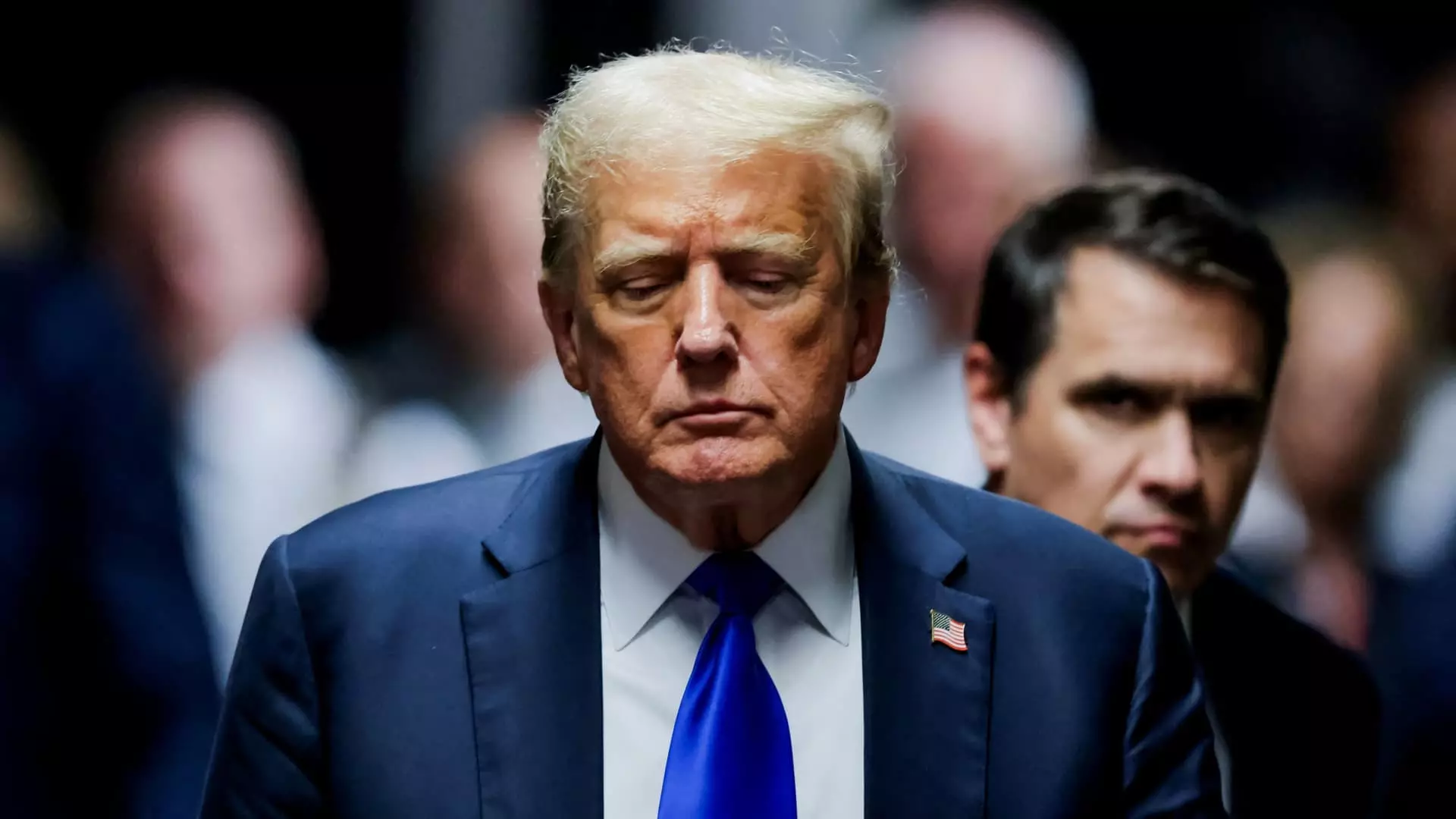The legal challenges facing former President Donald Trump have captured the attention of the nation, presenting a potent combination of political, legal, and societal implications. Recently, a New York court dealt a significant blow to Trump’s attempts to secure immunity for a criminal hush money conviction, underscoring the complexities that arise when personal and political realms collide. This situation not only raises questions about the extent of presidential immunity but also about the implications for future political figures navigating the legal landscape.
In May 2023, Donald Trump made history as the first former U.S. president to be convicted of a crime, resulting from 34 felony counts related to the falsification of business records. The charges stem from a $130,000 payment made by Trump’s former lawyer, Michael Cohen, to adult film actress Stormy Daniels during the crucial days leading up to the 2016 presidential election. This transaction, ostensibly aimed at securing Daniels’ silence about alleged past conduct, raises severe ethical and legal questions. The complexity is compounded by the fact that the transaction took place prior to Trump’s election, yet the subsequent actions linked to it took place during his presidency, invoking legal considerations around the holding of office.
Trump’s legal team sought to leverage the argument that he was entitled to presidential immunity concerning actions linked to his role as president. They cited a recent Supreme Court ruling affirming the presumptive criminal immunity of presidents for actions performed in their official capacity. However, Judge Juan Merchan dismissed this claim, arguing persuasively that falsifying business records is personal conduct, distinct from the duties of the presidency. Merchan’s ruling emphasized that even if the contested evidence had been linked to official conduct, it would not mitigate the legal consequences of falsifying records.
The judge’s 41-page decision illustrates the balancing act both the court and the legal team must undertake, recognizing the gravity of the accusations while adhering to legal standards that govern the accountability of public figures. Notably, the ruling casts aside the notion that personal misconduct by a president could implicate their official duties, reinforcing the principle that legal accountability applies uniformly, irrespective of the stature of the individual involved.
Trump’s legal battles have far-reaching political implications, as they occur at a time of heightened partisanship and public scrutiny. Statements from Trump’s representatives highlight a narrative of victimization, alleging a “witch hunt” from a politically motivated judiciary. This framing may resonate with segments of the electorate, potentially mobilizing his base ahead of any future elections.
While Trump’s defense team has sought to stall proceedings, aiming to postpone sentencing until after all appeals have been exhausted, the reality of legal timelines means that the courtroom drama will likely unfold concurrently with political campaigns. The Manhattan District Attorney’s Office has suggested the possibility of a delayed sentencing, which raises questions about the intersection of legal accountability and political viability.
Furthermore, the implications of this case extend beyond Trump himself. It sets a precedent for how future presidents may be treated in similar circumstances, potentially influencing the behavior of political figures who might otherwise feel insulated from legal consequences due to their status. As the nation grapples with these legal proceedings, citizens and policymakers alike must consider the broader impact on trust in governance, legal integrity, and the accountability owed to the electorate.
The ongoing legal challenges faced by Donald Trump paint a complex picture of an individual navigating the scrutiny of the law while engaged in the tumultuous arena of politics. As the ramifications of this case continue to unfold, the challenges facing Trump serve as a reminder of the delicate balance between political power and legal accountability. The decisions made in the courtroom in the coming months will not only affect the fate of one individual but may also redefine the expectations placed upon public officials in an increasingly vigilant democracy. The implications resonate beyond the individuals involved, encouraging an ongoing dialogue about the role of justice in a political landscape that is all too often fraught with division and discord.


Leave a Reply